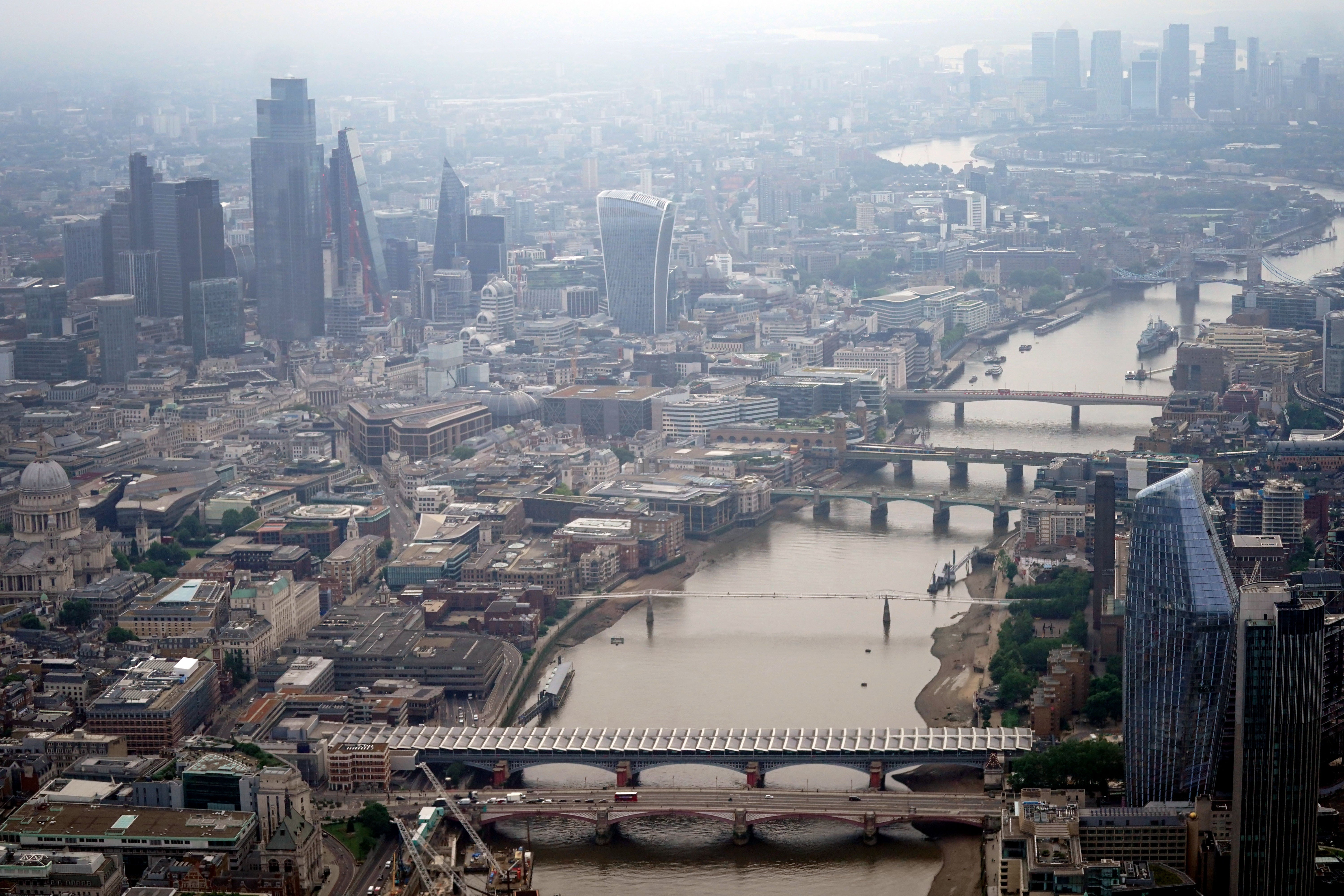Markets trade up despite afternoon blues
The FTSE 100 gained 24 points on Tuesday

Your support helps us to tell the story
From reproductive rights to climate change to Big Tech, The Independent is on the ground when the story is developing. Whether it's investigating the financials of Elon Musk's pro-Trump PAC or producing our latest documentary, 'The A Word', which shines a light on the American women fighting for reproductive rights, we know how important it is to parse out the facts from the messaging.
At such a critical moment in US history, we need reporters on the ground. Your donation allows us to keep sending journalists to speak to both sides of the story.
The Independent is trusted by Americans across the entire political spectrum. And unlike many other quality news outlets, we choose not to lock Americans out of our reporting and analysis with paywalls. We believe quality journalism should be available to everyone, paid for by those who can afford it.
Your support makes all the difference.The buoyant mood of London’s traders was smashed as markets opened in the US on Tuesday.
The top index of shares in the UK, the FTSE 100, had been trading up significantly, but dipped briefly into negative territory as New York woke up.
“The manufacturing PMIs seem to have been the catalyst for the uncertainty this week, with both China and the US producing worse than expected prints,” said Craig Erlam, an analyst at Oanda.
“The former is more worrying as the latter is still very strong and coming from a much higher point, but both do feed into the narrative of peak growth and with the China data coming at a time of rising Covid cases, potentially darker days ahead.”
But London’s market managed to regain some of its winnings, ending up 24 points at 7,106.
The 0.3% rise was driven by BP, which surprised shareholders by upping its dividend. It lit a fire under the company’s shares, which closed up 5.6%.
Other natural resources companies helped tug the FTSE 100 up, with banks also near the top following a decent set of results from Standard Chartered on Tuesday morning.
On the continent, the Frankfurt Dax spent most of the afternoon struggling but regained some ground shortly before close. It ended the day 0.1% lower than Monday’s close.
“European markets have struggled for direction today, with the Dax underperforming largely due to weakness in automakers led by BMW, who warned on the outlook due to supply chain concerns and chip shortages,” said CMC Markets analyst Michael Hewson.
“German chipmaker Infineon doubled down on this by saying that recent production outages in the US and Malaysia meant that chip shortages are at their worst levels in 30 years.”
But the French Cac market proved to have a better day, up 0.7%. In New York the S&P 500 was trading down around 0.1%, with the Dow Jones up around the same amount, as markets closed in Europe.
Sterling was trading up around 0.1%. By the end of the day one pound could buy 1.3903 dollars or 1.1721 euros.
It was a good day for British insurers, as Hiscox ended up 5.7%.
The business said that it had registered a profit of nearly £100 million in the first six months of the year, reversing a loss of around the same amount a year ago.
Fellow insurance giant Direct Line closed up 5.5% after its pre-tax profits rose by more than a tenth.
Greggs shares travelled in the opposite direction, closing down 2.9% even though it also returned to a profit.
Trade in recent months has been stronger than anticipated, driven by the suburbs and local high streets.
The biggest risers on the FTSE 100 were BP, up 16.35p to 306.1p, Anglo American, up 93p to 3,393p, Sainsbury’s, up 6.8p to 292p, Fresnillo, up 15.6p to 838.4p, and Shell A, up 25.8p to 1,479.2p.
The biggest fallers on the FTSE 100 were Smiths, down 157.5p to 1,414.5p, United Utilities, down 470p to 11,990p, Intercontinental Hotels Group, down 110p to 4,659p, Smith & Nephew, down 29.5p to 1,409.5p, and Weir Group, down 32p to 1,700p.